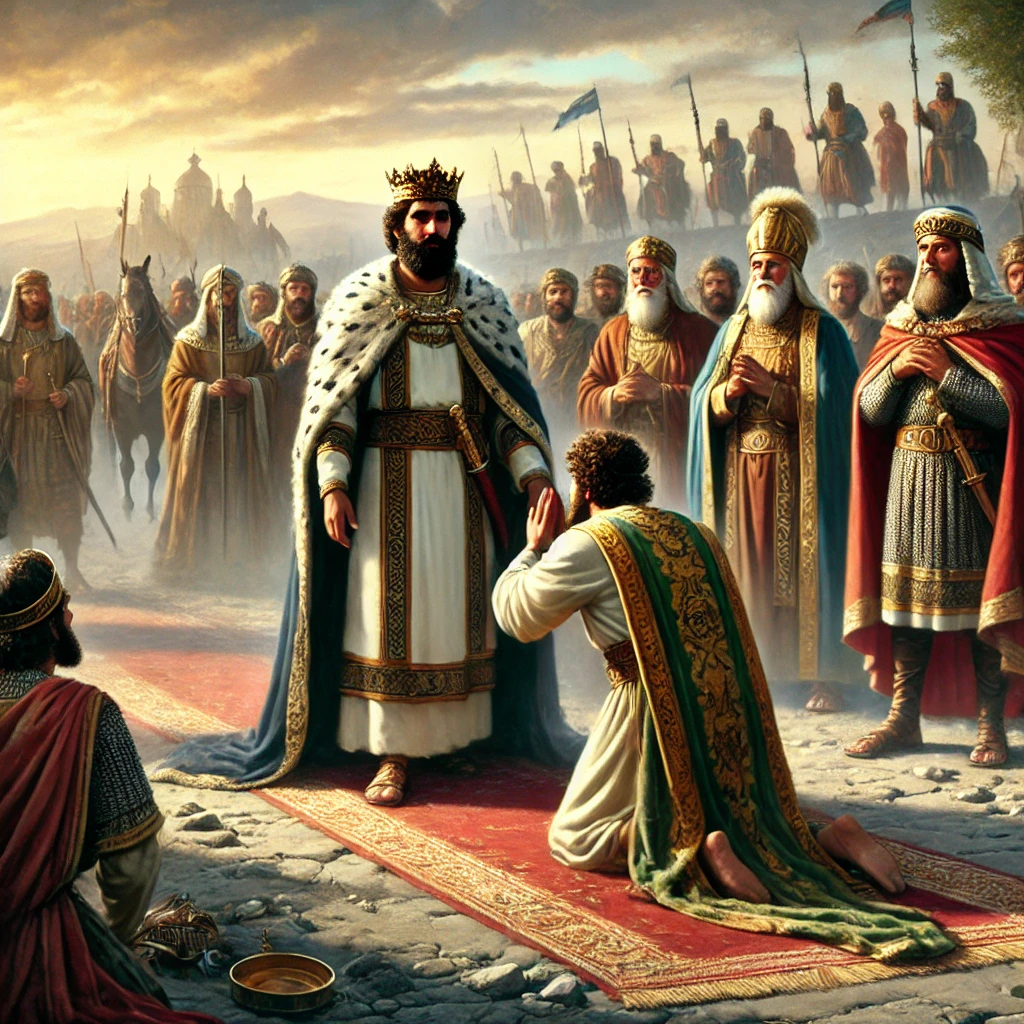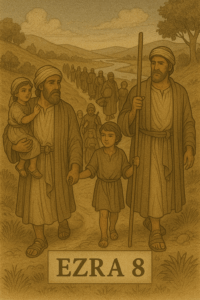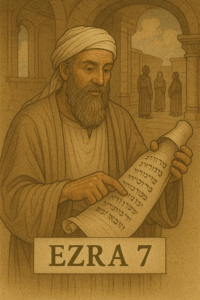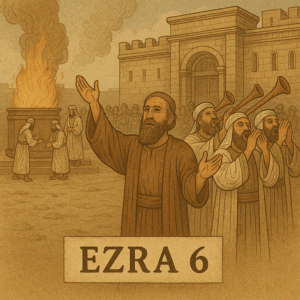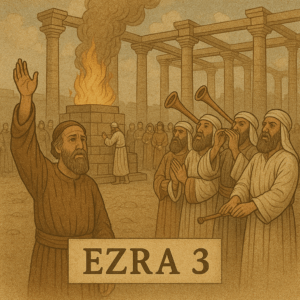Introduction.
2 Samuel Chapter 19 focuses on King David’s return to Jerusalem following the death of Absalom. This chapter captures the complex emotions of grief, reconciliation, and leadership as David seeks to rebuild his kingdom while addressing the lingering tensions within his people. Themes of forgiveness, loyalty, and restoration resonate throughout the narrative.
David’s Grief and Joab’s Rebuke.
The chapter begins with David mourning the death of Absalom, his rebellious son. Despite Absalom’s actions, David’s grief overshadows the victory of his troops, dampening their morale. Joab, David’s military commander, confronts him, urging him to show gratitude to his loyal supporters and take up his responsibilities as king. Joab’s rebuke spurs David to act, balancing his personal sorrow with his duty as a leader.
David’s Return to Jerusalem.
As David prepares to return to Jerusalem, he extends forgiveness and seeks to unify his fractured kingdom. Notable encounters include:
- Shimei’s Plea for Forgiveness: Shimei, who previously cursed David, begs for mercy. Despite opposition from his men, David spares Shimei’s life, showcasing his commitment to reconciliation.
- Mephibosheth’s Defense: Mephibosheth explains his absence during David’s flight, blaming his servant Ziba for deceiving him. David responds with a measured resolution, dividing Saul’s land between Mephibosheth and Ziba.
- Barzillai’s Generosity: Barzillai, an elderly supporter, declines David’s offer to join him in Jerusalem, instead requesting blessings for his servant Chimham. This encounter highlights David’s gratitude and Barzillai’s selflessness.
Challenges in Leadership.
David’s return is marked by tensions between the tribes of Judah and Israel. Disputes over loyalty and recognition reflect the challenges of leadership during times of division. David’s efforts to restore unity underscore the importance of balancing justice, mercy, and diplomacy.
Key Lessons from 2 Samuel Chapter 19.
- Balancing Grief and Leadership: David’s transition from mourning to action illustrates the need for leaders to balance personal emotions with their responsibilities.
- The Power of Forgiveness: David’s forgiveness of Shimei and others exemplifies the healing power of mercy and reconciliation.
- Restoring Unity: David’s return highlights the importance of addressing divisions and fostering unity among people.
Conclusion.
2 Samuel Chapter 19 is a poignant chapter that reflects the complexities of leadership, forgiveness, and restoration. David’s actions demonstrate his commitment to reconciliation and his ability to navigate the challenges of rebuilding his kingdom. As we reflect on this chapter, let us be inspired to extend forgiveness, foster unity, and lead with wisdom in times of difficulty.
